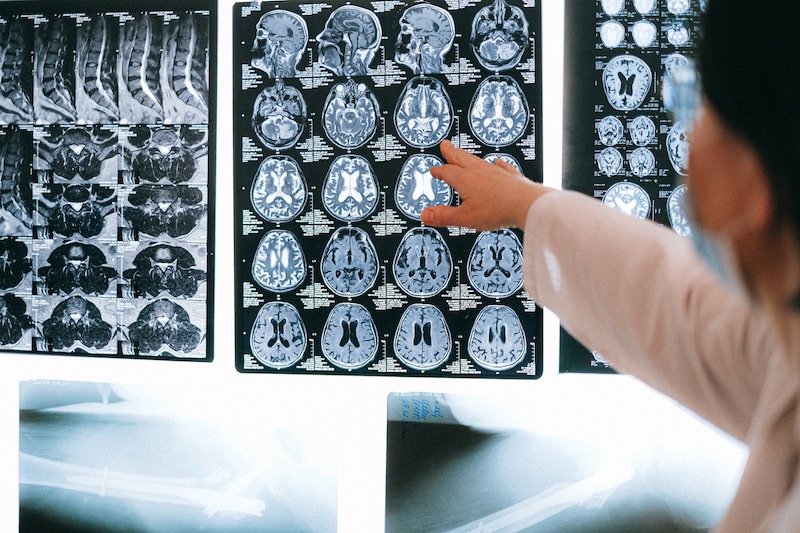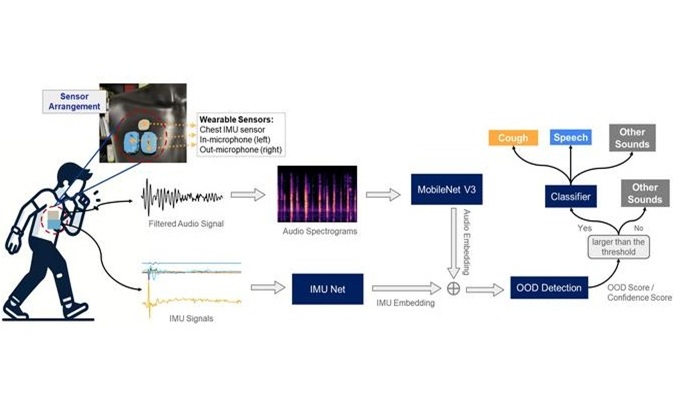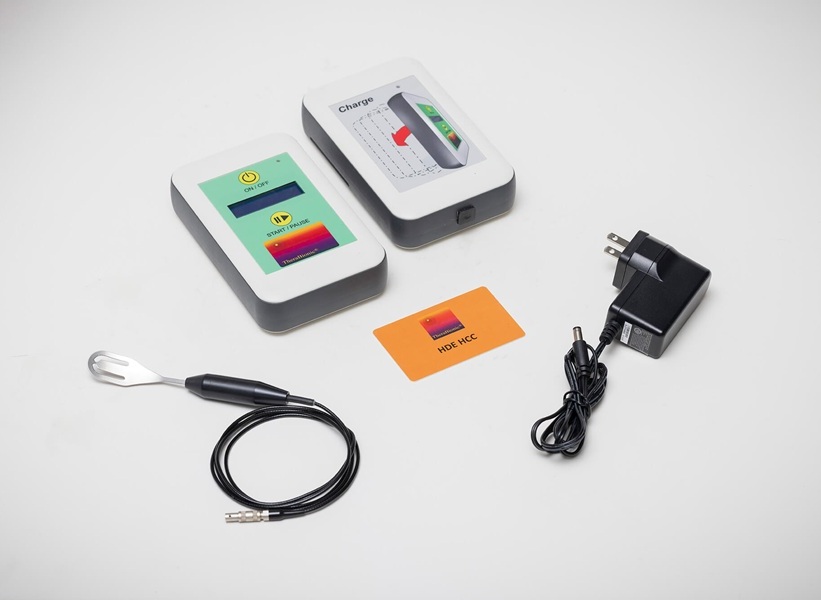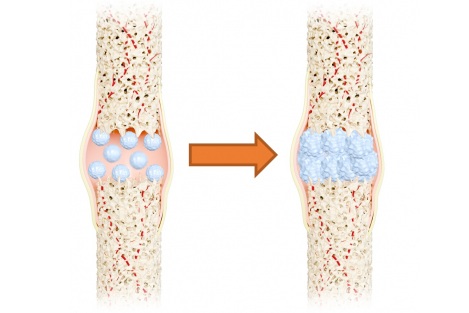AI Medical Diagnostic Algorithm for MRI Image Analysis Uses Self-Learning Across Hospitals
|
By HospiMedica International staff writers Posted on 01 Sep 2022 |

Healthcare is currently being revolutionized by artificial intelligence. With precise AI solutions, doctors can be supported in diagnosis. However, such algorithms require a considerable amount of data and the associated radiological specialist findings for training. The creation of such a large, central database, however, places special demands on data protection. Additionally, the creation of the findings and annotations, for example the marking of tumors in an MRI image, is very time-consuming. To overcome these challenges, researchers have developed an algorithm that is able to learn independently across different medical institutions. The key feature of the algorithm is that it is "self-learning", i.e. it does not require extensive, time-consuming findings or markings by radiologists in the MRI images.
A multidisciplinary team from the Technical University of Munich (TUM, Munich, Germany) collaborated with other clinicians and researchers to develop an AI-based medical diagnostic algorithm for MRI images of the brain, without any data annotated or processed by a radiologist. Furthermore, this algorithm was to be trained "federally": In this way, the algorithm "comes to the data", so that the medical image data requiring special protection could remain in the respective clinic and did not have to be collected centrally. The federated algorithm was trained on more than 1,500 MR scans of healthy study participants from four institutions while maintaining data privacy.
The algorithm then was used to analyze more than 500 patient MRI scans to detect diseases such as multiple sclerosis, vascular disease, and various forms of brain tumors that the algorithm had never seen before. This opens up new possibilities for developing efficient AI-based federated algorithms that learn autonomously while protecting privacy. In their study, the researchers were able to show that the federated AI algorithm they developed outperformed any AI algorithm trained using only data from a single institution. To pool knowledge about MRI images of the brain, the research team trained the AI algorithm in different and independent medical institutions without violating data privacy or collecting data centrally. By protecting patient data while reducing radiologists' workloads, the researchers believe their federated AI technology will significantly advance digital medicine.
"Once this algorithm learns what MRI images of the healthy brain look like, it will be easier for it to detect disease. To achieve this requires intelligent computational aggregation and coordination between the participating institutes," said Prof. Dr. Albarqouni. PD Dr. Benedikt Wiestler, senior physician at TUM's University Hospital, who was involved in the study. "Training the model on data from different centers contributes significantly to the fact that our algorithm detects diseases much more robustly than other algorithms that are only trained with data from one center."
Latest AI News
Channels
Critical Care
view channel
Origami Robots to Deliver Medicine Less Invasively and More Effectively
Delivering medicine to ulcers or other internal sites often requires invasive procedures that can disrupt surrounding tissues and lengthen recovery times. Traditional magnetic actuators used in soft robotics... Read more
Improved Cough-Detection Technology Aids Health Monitoring
Coughing serves as an important biomarker for tracking a variety of conditions and can help monitor the progress of respiratory diseases or predict when someone’s asthma is being exacerbated.... Read moreSurgical Techniques
view channel
Novel Glue Prevents Complications After Breast Cancer Surgery
Seroma and prolonged lymphorrhea are among the most common complications following axillary lymphadenectomy in breast cancer patients. These postoperative issues can delay recovery and postpone the start... Read more
Breakthrough Brain Implant Enables Safer and More Precise Drug Delivery
Delivering medication directly to specific regions of the brain has long been a major challenge in treating neurological disorders. Current implants and infusion systems typically reach only one or two... Read morePatient Care
view channel
Revolutionary Automatic IV-Line Flushing Device to Enhance Infusion Care
More than 80% of in-hospital patients receive intravenous (IV) therapy. Every dose of IV medicine delivered in a small volume (<250 mL) infusion bag should be followed by subsequent flushing to ensure... Read more
VR Training Tool Combats Contamination of Portable Medical Equipment
Healthcare-associated infections (HAIs) impact one in every 31 patients, cause nearly 100,000 deaths each year, and cost USD 28.4 billion in direct medical expenses. Notably, up to 75% of these infections... Read more
Portable Biosensor Platform to Reduce Hospital-Acquired Infections
Approximately 4 million patients in the European Union acquire healthcare-associated infections (HAIs) or nosocomial infections each year, with around 37,000 deaths directly resulting from these infections,... Read moreFirst-Of-Its-Kind Portable Germicidal Light Technology Disinfects High-Touch Clinical Surfaces in Seconds
Reducing healthcare-acquired infections (HAIs) remains a pressing issue within global healthcare systems. In the United States alone, 1.7 million patients contract HAIs annually, leading to approximately... Read moreHealth IT
view channel
Printable Molecule-Selective Nanoparticles Enable Mass Production of Wearable Biosensors
The future of medicine is likely to focus on the personalization of healthcare—understanding exactly what an individual requires and delivering the appropriate combination of nutrients, metabolites, and... Read moreBusiness
view channel
Philips and Masimo Partner to Advance Patient Monitoring Measurement Technologies
Royal Philips (Amsterdam, Netherlands) and Masimo (Irvine, California, USA) have renewed their multi-year strategic collaboration, combining Philips’ expertise in patient monitoring with Masimo’s noninvasive... Read more
B. Braun Acquires Digital Microsurgery Company True Digital Surgery
The high-end microsurgery market in neurosurgery, spine, and ENT is undergoing a significant transformation. Traditional analog microscopes are giving way to digital exoscopes, which provide improved visualization,... Read more
CMEF 2025 to Promote Holistic and High-Quality Development of Medical and Health Industry
The 92nd China International Medical Equipment Fair (CMEF 2025) Autumn Exhibition is scheduled to be held from September 26 to 29 at the China Import and Export Fair Complex (Canton Fair Complex) in Guangzhou.... Read more
















